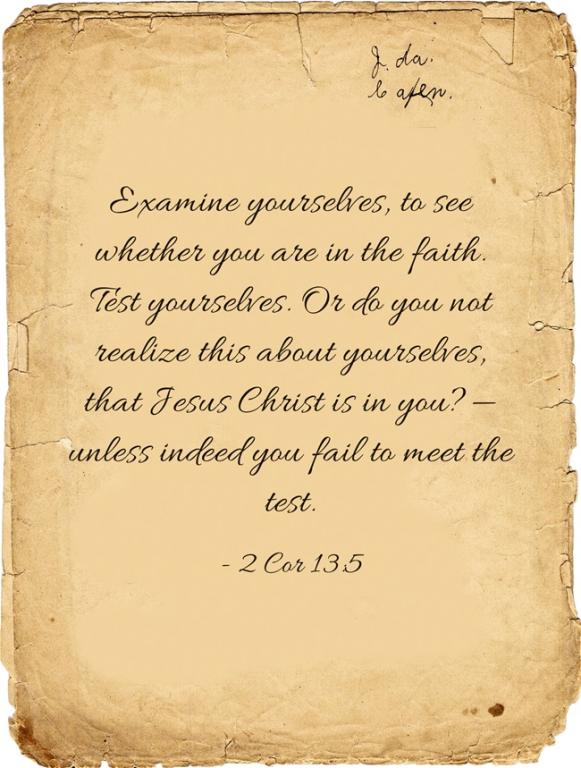What is Lent? What is the meaning behind the observance of Lent?
What is Lent?
Lent is the time period preceding Easter where many Christians observe a fast, abstinence, and/or penitence in commemoration of the fast that Jesus experienced in the wilderness. Lent runs from Ash Wednesday to Holy Saturday and includes forty weekdays. The purpose of Lent is to prepare the believer through prayer, penance, repentance of sins, the atonement, and through self-denial. Lent is primarily observed by the Anglican Church and the Eastern Orthodox Church but also by many Lutherans, Methodists, and Roman Catholics. Lent begins on Ash Wednesday and ends roughly six weeks later, just before Easter Sunday.
Why Observe Lent?
Why should Christians observe Lent? It is in the Bible? Was this observed by the first century church? Is it commanded of Christians today? The answer is no on all accounts. Lent is of human origin and was never taught by Jesus Chris or the apostles and was never commanded by Him, and neither is it found in the Bible. Even so, there is nothing inherently wrong with observing Lent but there is nothing wrong with anyone who doesn’t observe it either. For many Christians and denominations, Lent or the Lenten season is a time for serious self-examination and reflection and that’s always a good thing to do for Christians. The Apostle Paul writes to the church at Corinth, telling them to “Examine yourselves, to see whether you are in the faith. Test yourselves. Or do you not realize this about yourselves, that Jesus Christ is in you?—unless indeed you fail to meet the test” (2nd Cor 13:5) and wrote, “we pray to God that you may not do wrong—not that we may appear to have met the test, but that you may do what is right, though we may seem to have failed” (2nd Cor 13:6). We should all do self-examination to see if we are in a right relationship with God, if we have any unconfessed sin, and that we are striving to live lives of holiness before God. I don’t mean a life of perfection, which is impossible, but to strive to live lives that are pleasing to God.
What is their Authority?
What is the churches authority in observing Lent? What Bible verses do they cite to say that we should observe it? Again, there is no New Testament teaching or command to observe Lent. This word isn’t even found in the Bible but that doesn’t mean a believer can’t observe it. It’s only that they do so without Scriptural support or by a direct command from Jesus Christ Who is the Head of the Church. Some refer to the custom in 2nd Samuel 13:9 where it says, “Tamar put ashes on her head and tore the long robe that she wore. And she laid her hand on her head and went away, crying aloud as she went” but also Matthew 11:21 where Jesus said “Woe to you, Chorazin! Woe to you, Bethsaida! For if the mighty works done in you had been done in Tyre and Sidon, they would have repented long ago in sackcloth and ashes.” These are verses of “mourning and ashes” or “repentance and ashes” but these verses have little to do with the life, death, burial, and resurrection of Jesus Christ. Another verse is cited in Esther 4:1 where it says “When Mordecai learned all that had been done, Mordecai tore his clothes and put on sackcloth and ashes, and went out into the midst of the city, and he cried out with a loud and bitter cry” but again, we are hard pressed to see this as a command and anything specifically related to Jesus’ resurrection. This doesn’t mean it’s wrong; it just means that we cannot judge those who choose not to observe it.
Lent is Spring
The word Lent essentially means “spring” and so there is no significance or holiness of the word Lent or the observance of Lent. I do believe it is important to examine ourselves and see how our life looks when compared to Scripture. Yes, we all fall short but that doesn’t mean we shouldn’t make every effort to live according to God’s Word. There is much good that can come from a Christian’s mourning over their sin that creates a desire of repentance and trust in Christ. Many believers will give up certain pleasures during the Lenten season and fasting is a great way to humble ourselves before our God, so Lent is not wrong to observe, even though it is in the Bible. It is only when it becomes a ritual and becomes a form of religion without the focus being on having a relationship with Jesus Christ.
Conclusion
Whatever you observe, we are not to judge others by their observance of or a lack of observance of days, feasts, Sabbaths, or such as Paul wrote, “Therefore let no one pass judgment on you in questions of food and drink, or with regard to a festival or a new moon or a Sabbath” (Col 2:16) since “One person esteems one day as better than another, while another esteems all days alike. Each one should be fully convinced in his own mind” (Rom 14:5). What is right for us or what we feel we want to observe should not make us believe others should.
Article by Jack Wellman
Jack Wellman is Pastor of the Mulvane Brethren Church in Mulvane Kansas. Jack is also the Senior Writer at What Christians Want To Know whose mission is to equip, encourage, and energize Christians and to address questions about the believer’s daily walk with God and the Bible. You can follow Jack on Google Plus or check out his book Teaching Children the Gospel available on Amazon.












